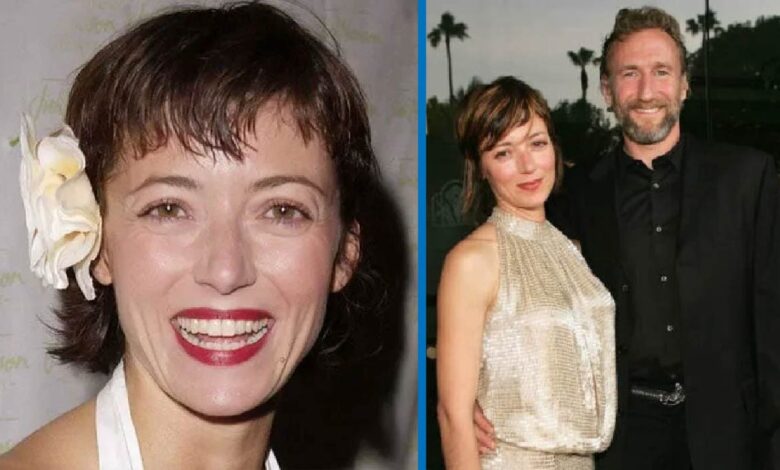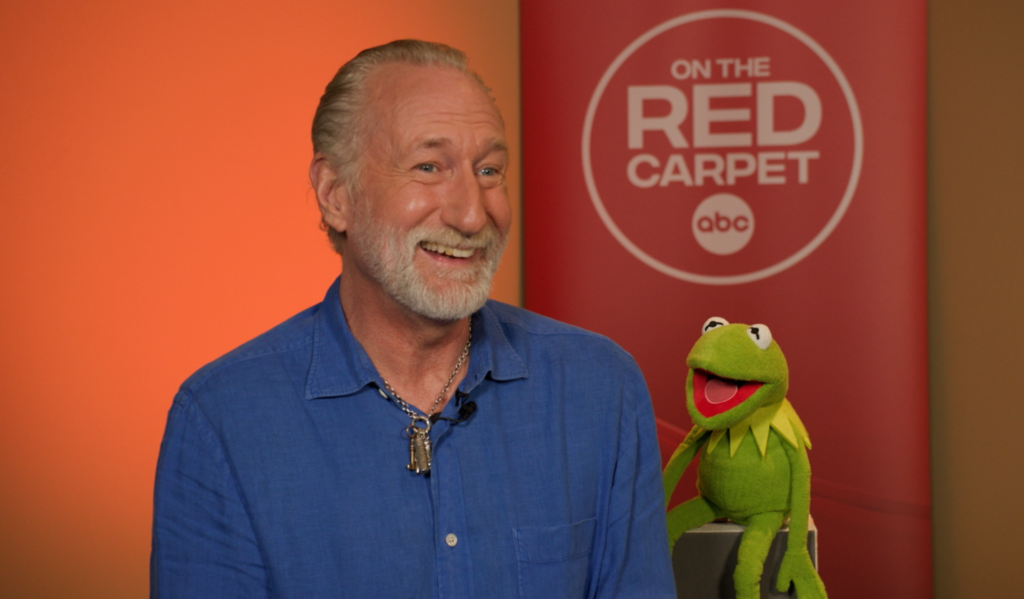
Amelia Jane Henson is best known as the daughter of actress Mia Sara and filmmaker Brian Henson. Born into a family with deep roots in Hollywood, Amelia’s life reflects the influence of her parents’ creative and iconic careers. Despite being part of a famous family, she has grown up in a relatively private environment, shielded from much of the media spotlight.
Quick Bio of Amelia Jane Henson
| Attribute | Details |
|---|---|
| Full Name | Amelia Jane Henson |
| Date of Birth | 2005 (18 years old as of 2023) |
| Parents | Mia Sara (Mother), Brian Henson (Father) |
| Siblings | Half-brother Dashiell Quinn Connery |
| Grandparent | Jim Henson (Creator of The Muppets) |
| Heritage | Hollywood legacy in acting and puppetry |
| Debut Film | Mouse (2012), directed by her father |
| Hobbies | Photography, arts, and creative pursuits |
| Estimated Net Worth | $1 Million |
| Known For | Being Mia Sara’s daughter |
What Is Amelia’s Family Background?
Amelia’s family background is nothing short of extraordinary. Her mother, Mia Sara, is celebrated for her roles in 1980s classics like Ferris Bueller’s Day Off and Legend, where she captivated audiences with her charm and acting prowess. Amelia’s father, Brian Henson, carries forward the legacy of his father, Jim Henson, the legendary creator of The Muppets. Brian is the chairman of The Jim Henson Company and has contributed significantly to puppetry and storytelling in modern entertainment.
Growing up in such a creative household, Amelia has been surrounded by art, film, and storytelling her entire life. Her parents’ careers have undoubtedly influenced her upbringing, instilling in her a love for the arts and creativity.
How Does Amelia Fit Into Her Blended Family?

Amelia is the only child born to Mia Sara and Brian Henson during their marriage. However, she is part of a blended family that expands beyond her immediate parents. On her mother’s side, Amelia has a half-brother, Dashiell Quinn Connery, born in 1997 during Mia Sara’s previous marriage to actor Jason Connery, the son of James Bond star Sean Connery.
On her father’s side, Amelia also has stepsiblings from Brian Henson’s marriage to Heather Henson in 2013. These include Christy Henson, Heather’s daughter from a previous relationship, and Emma and Zola Henson, who are connected through Brian’s extended family. Amelia has maintained close relationships with her siblings and stepsiblings, reflecting her upbringing in a supportive and nurturing family environment.
Amelia’s Early Life and Upbringing
As the daughter of two prominent figures in the entertainment world, Amelia experienced a childhood surrounded by the magic of storytelling and creativity. Whether it was her mother’s iconic performances or her father’s groundbreaking work in puppetry and filmmaking, Amelia had a front-row seat to the artistic world.
However, both Mia and Brian prioritized their children’s privacy, ensuring that Amelia grew up away from the pressures of Hollywood. Her parents’ protective approach to parenting allowed her to enjoy a relatively normal upbringing while still being exposed to the arts.
Age and Physical Appearance

As of 2023, Amelia Jane Henson is 18 years old. She has inherited her mother’s elegant looks and her father’s charming presence, blending the best of both her parents. While she maintains a low profile, rare family photographs and public appearances have highlighted her resemblance to her parents, particularly her mother, Mia Sara.
How Has Amelia Maintained Her Privacy?
Growing up in the spotlight isn’t easy, but Amelia has managed to avoid the pitfalls of celebrity life. Her parents made a conscious effort to shield her from media attention and paparazzi during her childhood. Even now, as a young adult, Amelia remains largely out of the public eye.
This commitment to privacy has enabled Amelia to focus on her education and interests without the constant scrutiny often faced by celebrity children. Her rare public appearances with her family are carefully curated, ensuring that her personal life remains protected.
Education and Personal Interests
While little is publicly known about Amelia’s education, it is widely speculated that she attended Crossroads School for Arts & Sciences in Santa Monica, California. This prestigious institution is known for fostering creativity and artistic expression, aligning perfectly with Amelia’s family background.
In addition to her education, Amelia has shown an interest in photography and other creative pursuits, reportedly sharing this passion with her mother, Mia Sara. Whether or not she chooses to follow in her parents’ footsteps in the entertainment industry, Amelia’s artistic inclinations suggest that she has a bright and creative future ahead.
What Are Amelia’s Artistic Endeavors?
Amelia’s creative journey began early, with her debut in the short film Mouse (2012), directed by her father, Brian Henson. The film tells the whimsical story of a mouse transforming into a girl, giving Amelia a unique opportunity to experience the filmmaking process firsthand.
Though Mouse remains her only confirmed acting credit, Amelia’s passion for the arts hints at a broader interest in storytelling. Whether through acting, photography, or another medium, it’s clear that Amelia has inherited her family’s love for creative expression.
How Do Amelia’s Parents Influence Her Journey?
Mother: Mia Sara

Mia Sara, widely recognized for her iconic roles in Ferris Bueller’s Day Off and Legend, has significantly influenced Amelia’s outlook on life. After achieving great success in Hollywood during the 1980s, Mia transitioned to a quieter lifestyle, focusing on her family and artistic passions. Beyond acting, she is deeply involved in photography, an interest she shares with Amelia. Mia’s creative spirit and dedication to storytelling have likely been a source of inspiration for her daughter, encouraging Amelia to explore her own artistic inclinations.
Father: Brian Henson

Brian Henson, Amelia’s father, plays an equally important role in shaping her worldview. As the chairman of The Jim Henson Company and the son of legendary puppeteer Jim Henson, Brian has dedicated his career to preserving and expanding his father’s groundbreaking legacy. His work in puppetry, filmmaking, and innovative storytelling has exposed Amelia to the magic of creative expression from a young age. Brian’s passion for the arts has likely instilled in Amelia a deep appreciation for the power of imagination and storytelling, influencing her perspective on creativity and life.
Together, Mia Sara and Brian Henson have provided Amelia with a balanced foundation of artistic inspiration, privacy, and freedom, allowing her to carve out her own path while respecting her family’s incredible legacy.
Amelia’s Net Worth and Financial Security
At just 18, Amelia is estimated to have a net worth of $1 million, largely derived from her family’s legacy and connections. This financial stability provides her with the freedom to explore her interests and ambitions without the pressure of immediate success.
Her privileged background allows her to make thoughtful decisions about her future, whether she chooses a career in entertainment or a more private path.
What’s Next for Amelia Jane Henson?
As Amelia transitions into adulthood, the world is curious about her next steps. Will she embrace her family’s creative legacy and pursue a career in acting or filmmaking? Or will she carve out her own path away from the limelight?
With her upbringing, talents, and financial security, Amelia has the tools to succeed in whichever direction she chooses. Her journey remains an open book, and fans of her family’s work are eager to see how she will contribute to their artistic legacy.
Why Does Amelia’s Story Resonate?
Amelia Jane Henson’s life offers a unique perspective on growing up with fame while maintaining a sense of normalcy. Her story highlights the delicate balance between privilege and privacy, making her a relatable figure for those navigating life in the shadow of famous parents.
Her ability to stay grounded despite her family’s prominence serves as an inspiration for others seeking to define their identity amid external expectations. Amelia’s story is a testament to the power of supportive parenting and the importance of pursuing one’s passions.
Conclusion
Amelia Jane Henson embodies the balance between a life steeped in Hollywood legacy and a desire for personal privacy. As the daughter of Mia Sara and Brian Henson, she has grown up surrounded by creativity, yet she has remained grounded thanks to her parents’ thoughtful approach to parenting.
As she steps into adulthood, Amelia holds the reins of her future, and the world watches with curiosity. Whether she continues her family’s creative legacy or forges her own path, one thing is certain: Amelia’s journey is one to watch.
FAQs About Amelia Jane Henson
Who is Amelia Jane Henson?
Amelia Jane Henson is the daughter of actress Mia Sara and filmmaker Brian Henson. She comes from a family deeply rooted in Hollywood, with her grandfather being Jim Henson, the creator of The Muppets.
How old is Amelia Jane Henson?
As of 2023, Amelia Jane Henson is 18 years old. She was born in 2005 and has grown up in a creative and nurturing environment.
Does Amelia have any siblings?
Yes, Amelia has a half-brother, Dashiell Quinn Connery, from her mother’s previous marriage. She also has stepsiblings through her father’s remarriage to Heather Henson.
Has Amelia Jane Henson appeared in any films?
Amelia made her acting debut at the age of seven in the short film Mouse (2012), directed by her father, Brian Henson. This remains her only confirmed acting credit.
What is Amelia Jane Henson’s family legacy?
Amelia’s family legacy includes her mother’s iconic acting career, her father’s work in puppetry and storytelling, and her grandfather Jim Henson’s legendary creation of The Muppets.
What are Amelia’s hobbies and interests?
Amelia is said to share a love of photography with her mother and has shown a general interest in the arts. Her creative pursuits hint at a future in visual storytelling or cinematography.
How does Amelia maintain her privacy?
Amelia’s parents have been protective of her privacy since childhood, keeping her out of the media spotlight. Even now, as a young adult, she maintains a low profile with rare public appearances.
For More Update and Stories Visit: Hollywood Times




